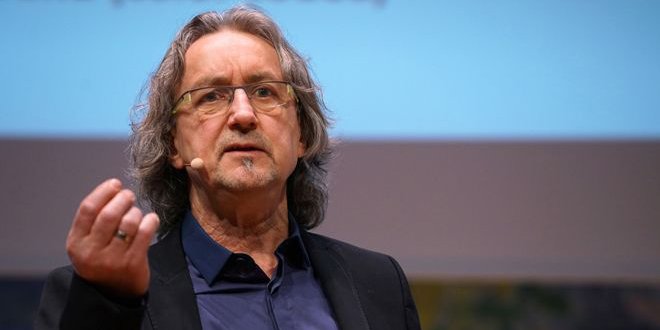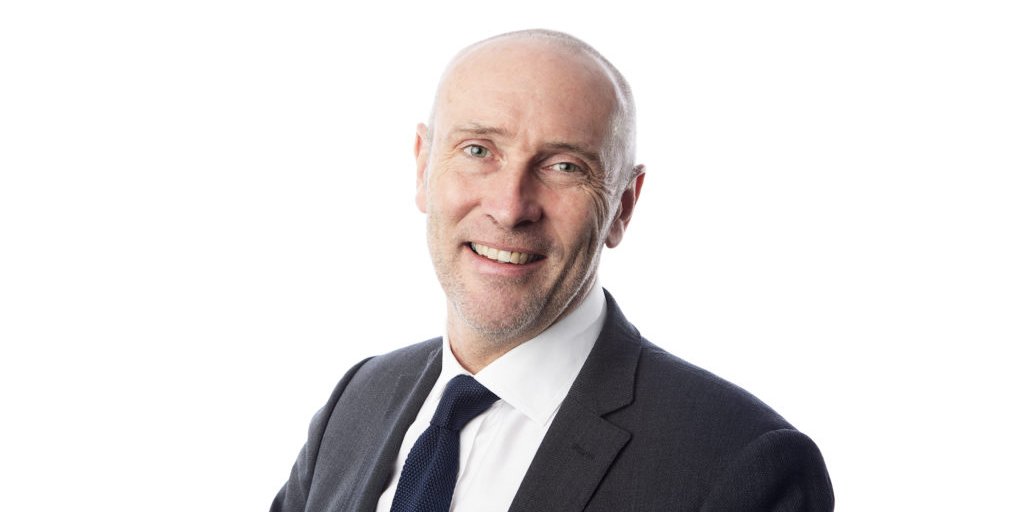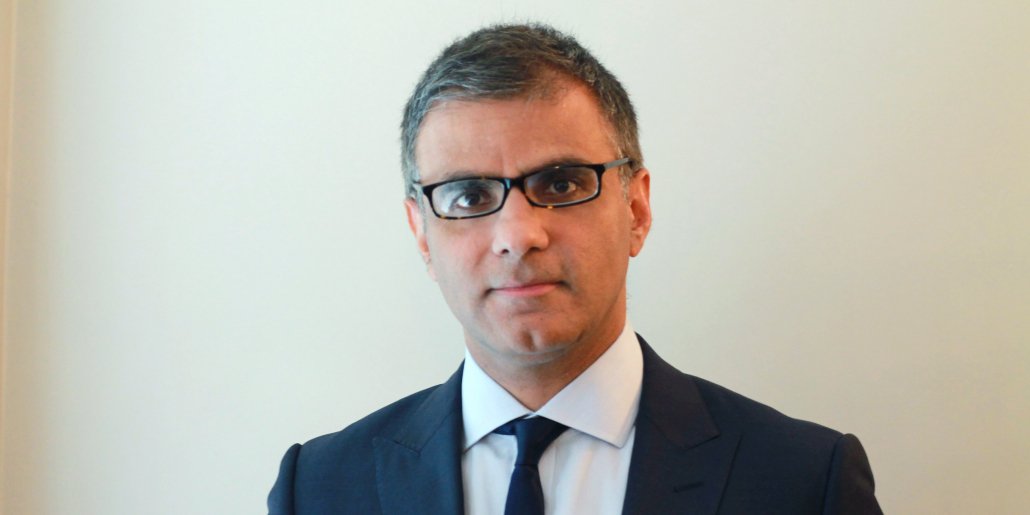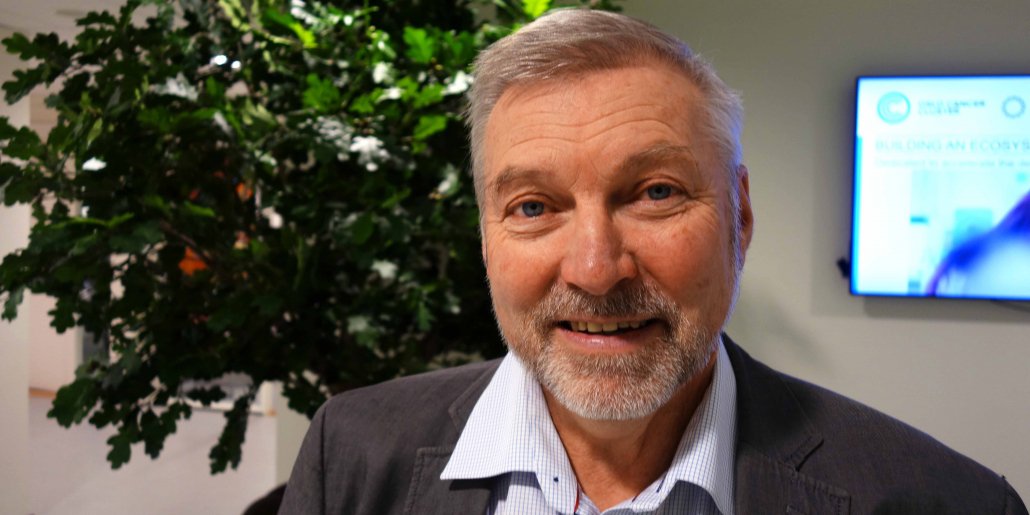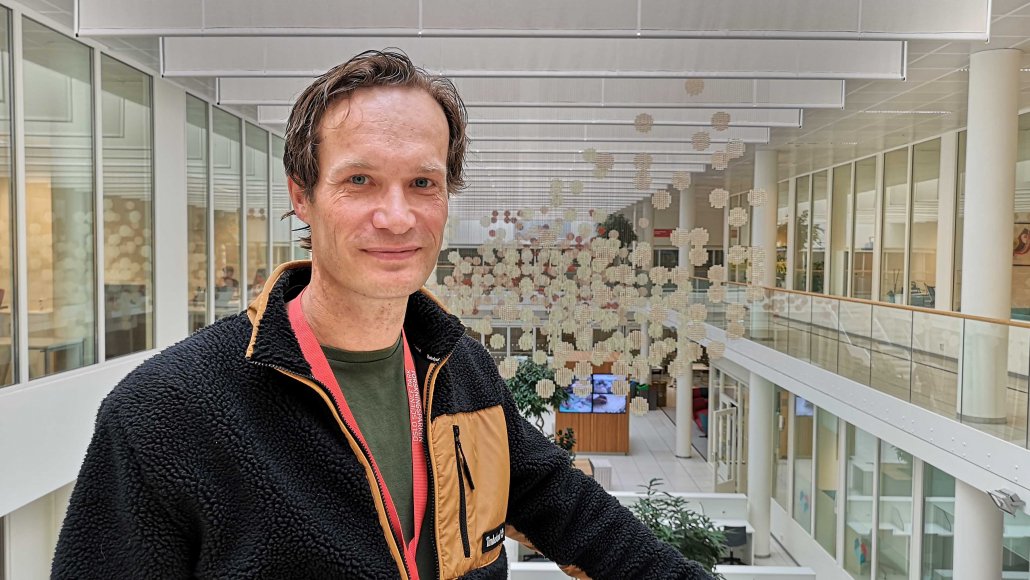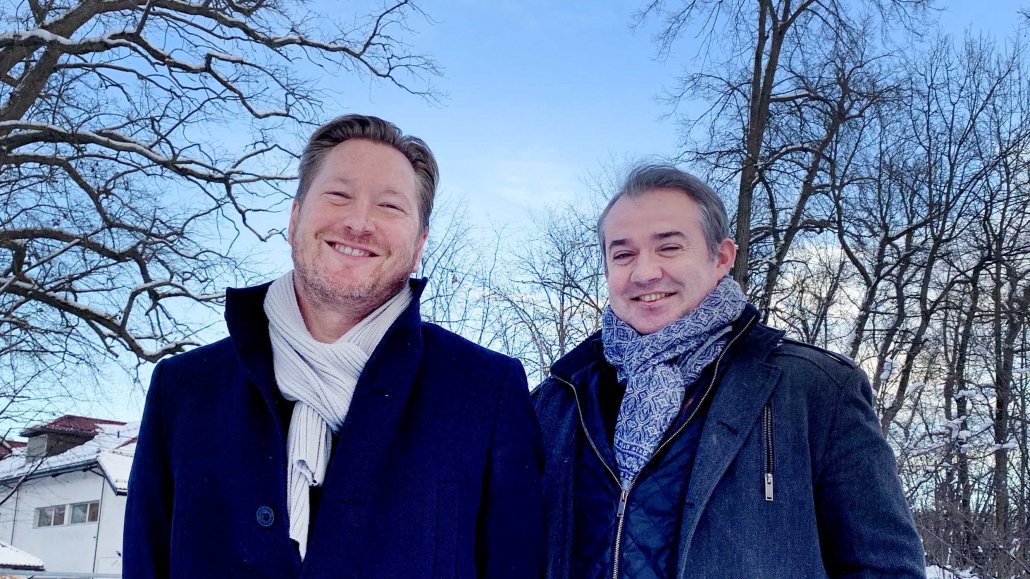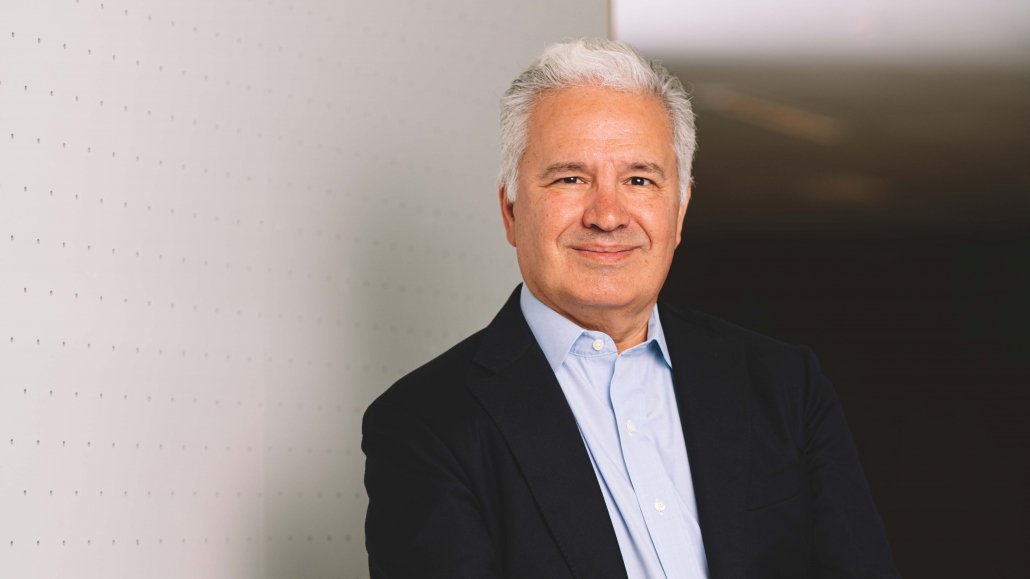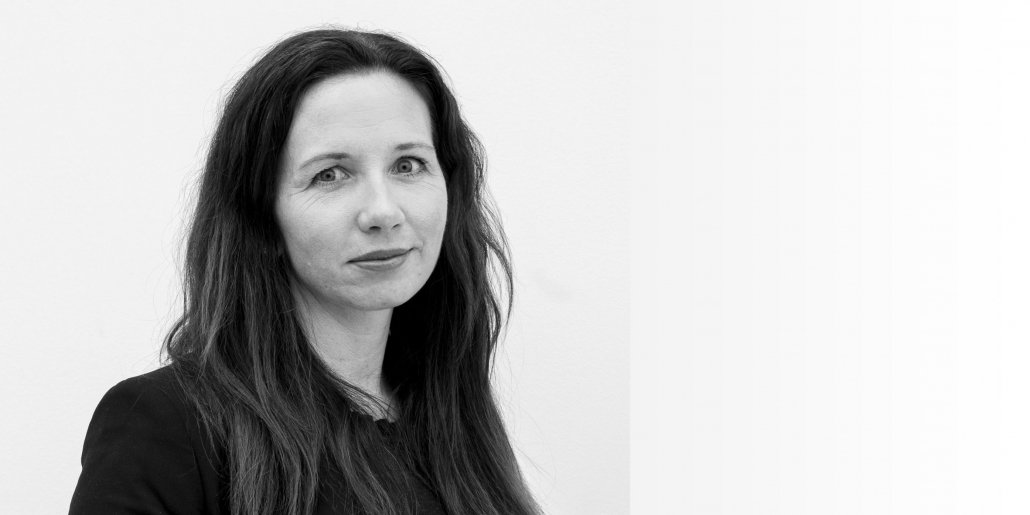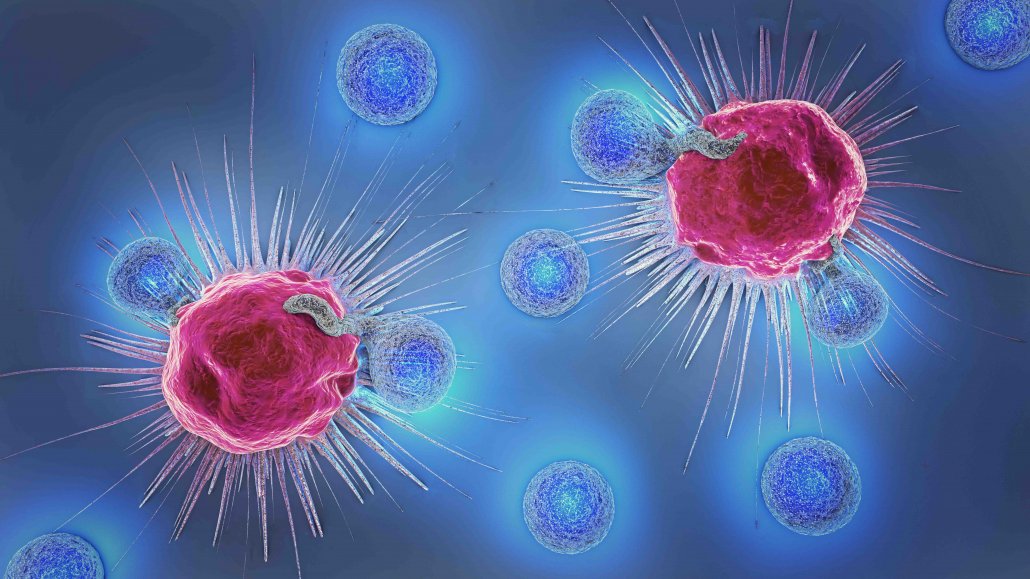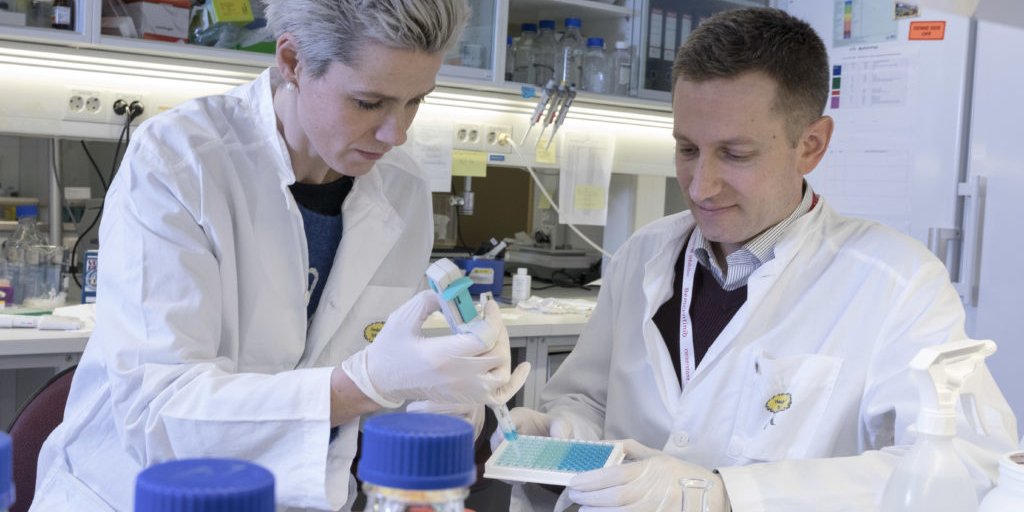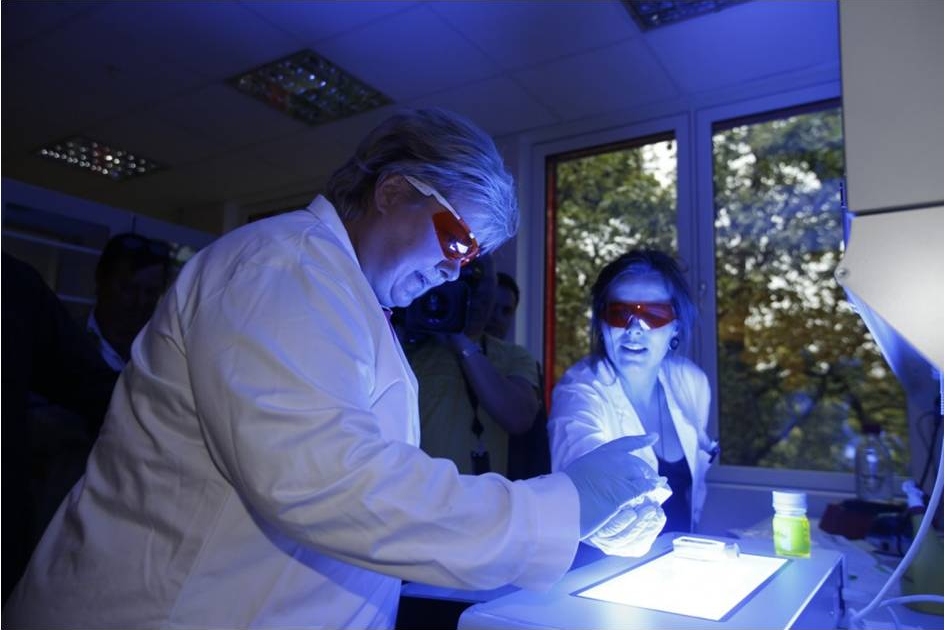Top news 2020 from Oslo Cancer Cluster’s members
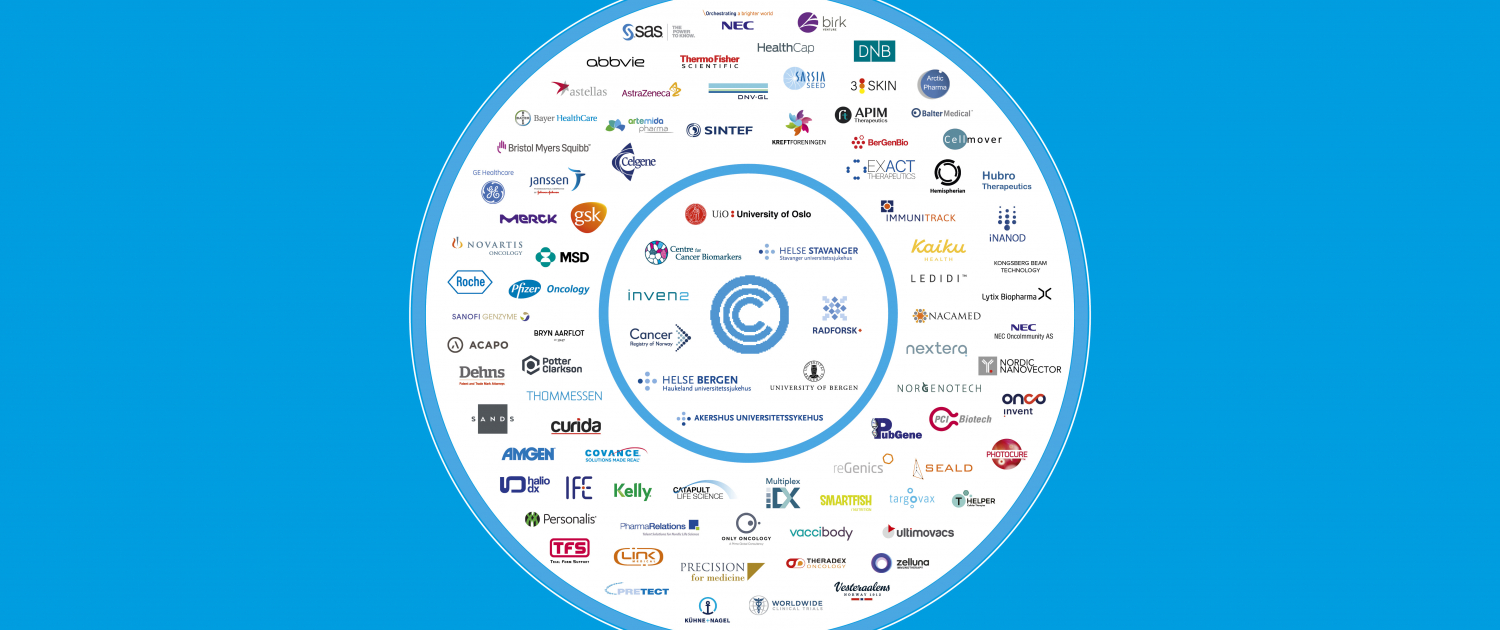
Despite the challenges with the corona pandemic, several of our members have distinguished themselves with good news and positive updates throughout the year.
The corona pandemic made 2020 a challenging year for many companies, but the health industry showed a remarkable ability to adapt to the new circumstances. For companies running clinical trials, two major challenges have been restricted access to hospitals, which forced a temporary stop to clinical trials in March, and disruptions to the global supply chain.
Healthcare companies have worked tirelessly despite these obstacles. For that reason, we wish to highlight ten of our Norwegian members (in alphabetical order) who caught our attention this year.
Adjutec Pharma
Adjutec Pharma is a Norwegian start-up with a technology called ZinChel against antibiotic multi-resistance, a condition that can become life threatening, especially for cancer patients. This summer, Adjutec Pharma secured exclusive rights to the patents for the ZinChel technology and will raise more money to accelerate development of the drugs in collaboration with researchers at University of Oslo. Adjutec Pharma also received several grants, including NOK 16 million in innovation support from the Norwegian Research Council. The company will now raise 20 million dollars in investments to reach phase II clinical trials, including public and private funding.
BerGenBio
The Bergen-based Norwegian clinical-stage biopharmaceutical company that develops AXL kinase inhibitors (a form of cancer immunotherapy) has had a remarkable year. In April, the company was selected as the first to be included in the ACCORD trial, which will test the company’s cancer therapy as a treatment for hospitalised Covid-19 patients. In May, the company raised NOK 500 million in an oversubscribed private placement. The company has also consistently reported positive results from the ongoing phase II trial testing a combination treatment of the AXL kinase inhibitor Bencemtinib and immunotherapy Keytruda on non-small cell lung cancer (NSCLC) patients.
Visit BerGenBio’s official website to learn more
Exact Therapeutics
Exact Therapeutics is a clinical-stage Norwegian biotech company developing a technology platform for more targeted cancer treatments, called Acoustic Cluster Therapy. This year, the company changed its name from Phoenix Solutions to Exact Therapeutics and appointed Rafiq Hasan as new CEO. Shortly after, the company was listed on Merkur Market (Oslo Stock Exchange) and its value skyrocketed to nearly NOK 1 billion during the first day of trading. In September, Exact Therapeutics restarted its phase I ACTIVATE study, enrolling the first patient at the Royal Marsden Hospital in London. The study is assessing the safety, tolerability and preliminary efficacy of Acoustic Cluster Therapy in combination with chemotherapy in patients with metastatic colorectal and pancreatic cancer.
Visit Exact Therapeutic’s official website to learn more
Kongsberg Beam Technology
Kongsberg Beam Technology has developed a technology that increases the accuracy of proton therapy, a treatment that is more precise than traditional radiotherapy against cancer. This year, the Norwegian Research Council awarded a grant of NOK 23 million in support of the development of this technology. The company has partnered with Semcon to develop the control and monitoring systems, a full-scale prototype for testing, as well as a digital twin of a patient or organ. The experienced CEO Kerstin Jakobsson has also joined Kongsberg Beam Technology during 2020.
Ledidi
The Norwegian start-up Ledidi offers a cloud-based software solution that makes sharing of health data easier for researchers. This year, the software was approved for all clinical trials on Covid-19 at Oslo University Hospital. This both simplifies the workflow for medical researchers and makes it possible to share data more securely between clinical institutions and countries. It can also perform complicated statistical analyses on large data sets in a short time frame, which makes it ideal for clinical studies on cancer.
Visit Ledidi’s official website to learn more
NEC OncoImmunity
The Norwegian bioinformatics company NEC OncoImmunity AS offers innovative software based on machine learning. The artificial intelligence (AI) platform the company has developed can identify neoantigens, which are key to unlocking the immune system and combating cancer. NEC OncoImmunity made headlines this year by adapting the company’s AI platform towards the development of blueprints for a corona vaccine. In October, NEC OncoImmunity also teamed up with Oslo University Hospital to develop a diagnostic tool for Covid-19 using AI.
Visit NEC OncoImmunity’s official website to learn more
OncoInvent
OncoInvent is a Norwegian pharmaceutical company developing new innovative radiopharmaceutical products to treat cancer patients. The company was established ten years ago by serial entrepreneurs Roy Larsen and Øyvind Bruland. This year, OncoInvent initiated its first clinical studies: two phase I trials in May and June on ovarian and colorectal cancer with progression to the abdominal cavity. The studies are performed at Oslo University Hospital, which means that Norwegian cancer patients gain access to new and innovative treatments long before the treatments reach the market.
Visit OncoInvent’s official website to learn more
Photocure
Photocure is a bladder cancer company with a unique light technology, which was developed in Norway, to better detect cancer cells. In January, Photocure’s groundbreaking technology was highlighted in the LA Fox 11 news programme. The biggest news of the year was when Photocure regained worldwide rights to the product Hexvix. Photocure also secured a European patent for Cevira, a photodynamic drug device against cervical cancer. Photocure then appointed Susanne Strauss as Vice President and General Manager of Europe. Moreover, a global phase III trial of Cevira was initiated by the company’s partner Asieris.
Visit Photocure’s official website to learn more
Ultimovacs
Ultimovacs is a pharmaceutical company developing novel immunotherapies against cancer. The lead product is a universal vaccine called UV1 that has the potential to be used against most cancer types. This year, Ultimovacs appointed Carlos de Sousa as new CEO of the company. In June, the company recruited the first patients in two new phase II studies called INITIUM and NIPU, which will recruit up to 400 patients with melanoma and mesothelioma respectively. A third phase II clinical trial is in the planning with an unknown large pharmaceutical partner. The purpose of these studies is to confirm the results from the company’s completed phase I trials, which have shown promising survival data for several years now. Last week, Ultimovacs announced five-year survival data for melanoma patients who received UV1 in combination with ipilimumab – 50% of the patients were still alive.
Visit Ultimovacs’ official website to learn more
Vaccibody
Vaccibody is a Norwegian clinical-stage biopharmaceutical company discovering and developing novel immunotherapies. When the corona pandemic struck, the company quickly expanded its technology platform to include infectious diseases; both a strategy and preclinical results of a vaccine was released last week. In October, Vaccibody signed the largest biotech agreement ever in Norway with Genentech (Roche). The agreement is worth up to 715 million dollars in near term and milestones, in addition to low double-digit tiered royalties on sales of commercialized products. Vaccibody was shortly after listed on Merkur Market (Oslo Stock Exchange). Last but not least, co-founder and owner Agnete B. Fredriksen received the Research Council of Norway’s prestigious Innovation Award in November.
Visit Vaccibody’s official website to learn more
Oslo Cancer Cluster has more than 90 members, including Norwegian and international companies, research and financial institutions, university hospitals and organizations – all working in the cancer field. They represent the entire oncology value chain, doing everything from exploratory research to selling therapeutics and diagnostics to global markets.
Please visit our member overview page and click on the logos to access the website of each member.

